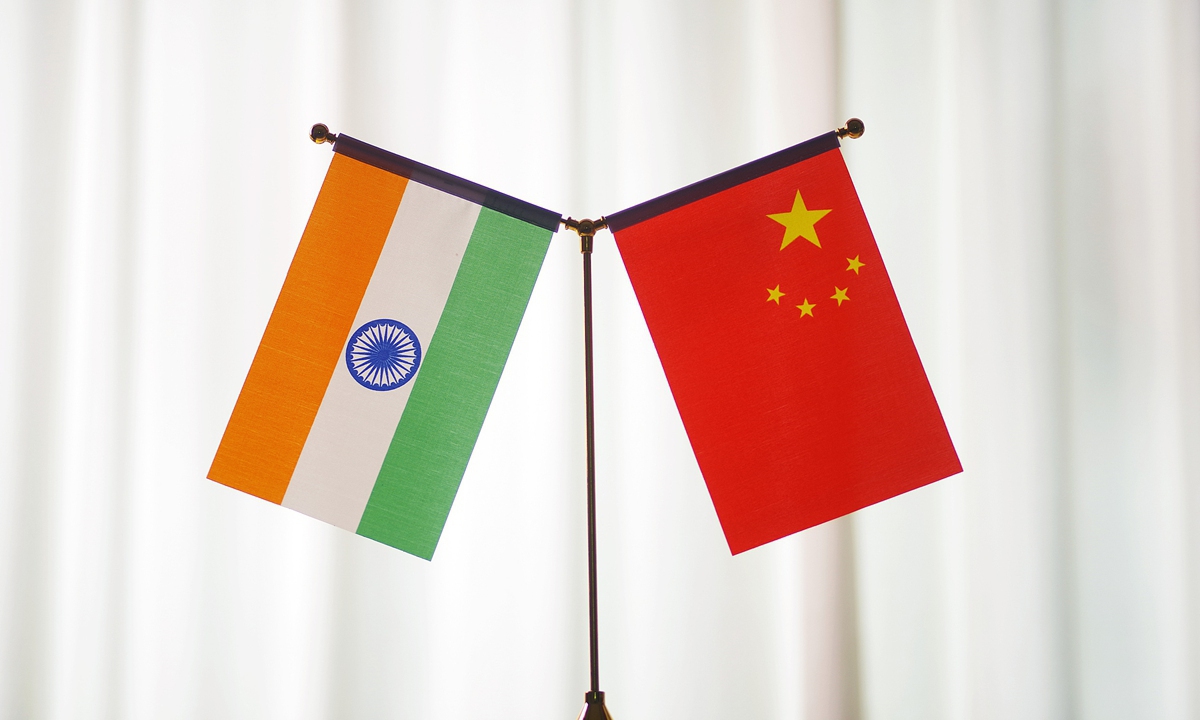
China India Photo:CFP
India's general election is upcoming. The seven-phase general election is scheduled to start on April 19, and the results will be announced on June 4.
Indian Prime Minister Narendra Modi is seeking a third consecutive term.
Chinese media is paying great attention to this election in India, as India is a neighboring country to China, and the two countries have frequent border disputes. In 2020, China and India were involved in a violent clash in the Galwan Valley, resulting in the deaths of four Chinese soldiers and at least 20 Indian soldiers.
India is also an important destination for Chinese investors, especially for mobile phone companies. In the past few years, the Indian government has taken some unfair measures in dealing with Chinese companies, which has triggered strong dissatisfaction among Chinese firms and Chinese people.
The continuous improvement of China-India economic and trade relations has been a focus of attention for the Chinese media. In 2023, China-India bilateral trade volume amounted to $136.22 billion, a year-on-year increase of 1.5 percent, of which China's exports to India reached $117.68 billion, up 0.8 percent year-on-year, while China's imports from India were $18.54 billion, up 6 percent year-on-year.
India is very concerned about the continued rise in the trade deficit with China, but this shows the complementarity of trade between China and India, and the need for India's continued growth in foreign trade to be supported by Chinese manufacturing.
Our fear, therefore, is that the Indian media will use sensitive topics, such as China, to build momentum for the side they support, like what they have done in the past. The candidates will also use China-related issues to round up more votes.
China-India relations are currently at a relatively stable stage, and both sides are trying to make progress in boundary negotiation. According to India Today, India's External Affairs Minister S Jaishankar on March 12 expressed concerns over the ongoing tensions between India and China, which "has not benefited either nation." However, as the Indian general election approaches, the possibility of tensions being spurred for electioneering reasons is becoming higher and higher. China does not want China-related issues to be manipulated by Indian political forces for votes and we don't want negative opinions or feelings to be spread about our country.
Modi's intention to visit the area of Zangnan in China on March 9 is a case in point. The area of Zangnan is Chinese territory. The Chinese government has never recognized the so-called "Arunachal Pradesh" illegally set up by India and firmly opposes it. China firmly opposes the Indian leader's visit to the East Section of the China-India boundary, and has made solemn representations to India.
Some Indian media outlets and elites are also exploiting the issue of the India-China trade deficit, which is likely to become a topic in the election, leveraging anti-China sentiment to garner votes.
For a long time, there has been certain hostility against China in India due to historical issues, border and trade issues. The self-defensive counterattack along the China-India border over 60 years ago still profoundly affects the relationship between the two countries.
External forces, especially Western public opinion, create comparisons through so-called democratic topics, pit one side against the other, sow discord between China and India, maliciously hype up China-India competition and even spread rumors to mislead India into viewing China as a major competitor. All this seriously affects and undermines the perception each side has of the other. During the election period, Indian public opinion needs to be highly vigilant against this kind of misleading that could cause long-term harm to China-India relations.
Resolving the remaining issues between India and China requires joint efforts from both sides, which is also conducive to creating an atmosphere for the two countries to resolve issues such as borders and trade through political means.
We hope that relevant parties in India will maintain a clear understanding of this. India's existing electoral system has the potential to harm China-India relations, and any attempt to exacerbate anti-China sentiment among the public to gain votes will ultimately cause more trouble for the bilateral relationship and bring more instability to India.




